Business & Economics: Entrepreneurs
Ruth Lewis Farkas
Ruth Lewis Farkas’ remarkable and varied career ranged from creating a retail chain that survived the Great Depression, to teaching sociology, to running international education initiatives. Her impressive and full life spanned many occupations: educator, sociologist, businesswoman, philanthropist, inventor, wife, and mother.

Alexandra Fine
Edith Flagg

Susan Galler
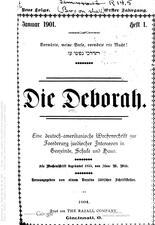
German Immigrant Period in the United States
Jean Gordon
Jean Gordon had two successful careers in her lifetime, as a founder of the Advance Pattern Company and as the owner and publisher of Dance Magazine. Through her work with Dance Magazine, she led the publication to financial stability and to a prominent place in the dance world.
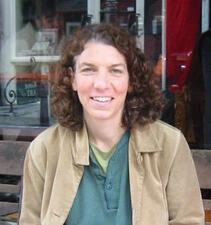
Sally Gottesman
Sally Gottesman, born 1962 in New Jersey and residing in New York, is a non-profit entrepreneur whose leadership and philanthropy have had a major impact on the Jewish feminist and justice landscape.

Edith Gregor Halpert
Edith Gregor Halpert was an influential American art dealer, collector, and businesswoman who opened prominent Modern Art and Folk Art galleries. As a socially conscious and successful woman, she worked to promote the rights of artists, and her galleries showcased the works of African American artists.
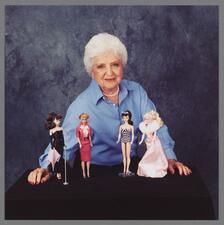
Ruth Mosko Handler
Best known as the inventor of the Barbie doll, Ruth Mosko Handler combined her marketing genius with her husband Elliot Handler’s creative designs to form the toy company Mattel, Inc., in 1939. Her battles with cancer later in her career led her to create the company Nearly Me, which developed prosthetics for breast cancer survivors.
Sylvia Hassenfeld
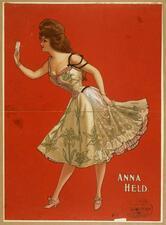
Anna Held
Anna Held was a performer with a flamboyant reputation for bathing in milk and champagne. As an actor in numerous farces, comedies, and musical comedies, she led a life of showmanship that prevents bibliographical certainty. Held was best known for her relationship with Florenz Ziegfeld, and some credit her with helping him create his famous Follies.

Jazz Jennings

Jewish Women in Computer Science
From hardware to software, from developing new programming languages to revolutionizing applications, Jewish women have been part of significant projects on the cutting edge of computing in the United States.
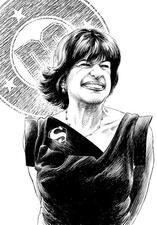
Jenette Kahn

Lizzie Black Kander
Lizzie Black Kander was a Jewish philanthropist who turned the recipe book she made for a cooking class for new immigrants into a two-million-copy bestseller. Her decades of service in the early twentieth century had an unforgettable impact on the Milwaukee Jewish community.

Donna Karan
Donna Karan started her career as an intern for the renowned designer Anne Klein and became the design director for Klein’s label in 1974. She quickly built a reputation for designing clothes for a range of body types. She has two of her own brands, which have become household names around the world, and her designs have regularly won awards.
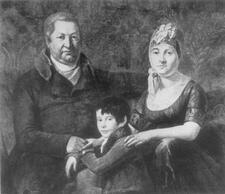
Chaile Raphael Kaulla
Chaile Raphael Kaulla was the most influential Jewish woman entrepreneur and one of the last Court Jews in eighteenth-century Germany. A devout Jew, Kaulla supported both Jewish and Christian poor people, founded a hostel for Jewish travelers, and in 1803 donated a bet midrash, library, and funding for three rabbis to her town of Hechingen. The Austrian Emperor honored Kaulla in 1807 and she and her family were allowed to live in Stuttgart with rights equal to those of Christian citizens.
Lillian Kasindorf Kavey
Lillian Ruth Kessler

Poppy King
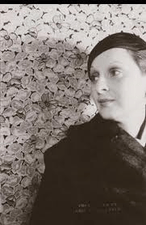
Blanche Wolf Knopf
Blanche W. Knopf made the publishing firm she shared with her husband one of the most respected in the world, bringing some of the greatest American and European thinkers of the twentieth century to an American audience.
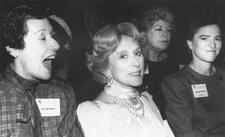
Estée Lauder
Estée Lauder became a household name for beauty thanks to the luxurious makeup, lotions, and perfumes she created. An astute businesswoman, she made a fortune manufacturing, marketing, and distributing cosmetics around the world and was regularly honored for her business achievements.
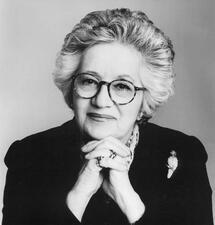
Judith Leiber
Judith Leiber carved a unique place for herself in the world of fashion as the designer of some of the most inventive and sought-after handbags in the world. After fleeing the Nazi occupation of Hungary, Leiber worked for various handbag manufacturers in America before starting her own company in 1963.




